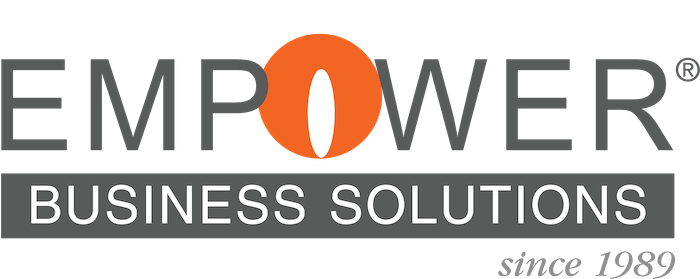For growing companies, choosing the right ERP system is not just about software. It is about setting the stage for everything that follows: scalability, security, innovation, and user adoption. The debate between cloud and on-premise ERP is not new, but it is more relevant than ever in 2025.
As a regional Acumatica partner with deep, hands-on implementation experience, Empower Business Solutions helps mid-sized manufacturers and distributors make ERP decisions with clarity, not pressure. Here is what you need to consider.
1. Cloud vs. On-Premise: What Is the Core Difference?
Cloud ERP systems are hosted on remote servers and accessed via the internet. On-premise ERP is installed locally on your organization’s servers and maintained in-house.
Each model has distinct implications for cost, scalability, control, and support.
2. Cost & Licensing Models
Cloud ERP generally follows a subscription model, spreading costs over time. On-premise ERP often requires a large upfront investment.
But do not just focus on the initial price tag. Ask yourself: What is the total cost of ownership over five to ten years? ERP implementations typically cost 1-3% of annual revenue, covering initial deployment and ongoing lifecycle costs.
Cloud ERP typically includes hosting, maintenance, and updates, while on-premise systems often incur ongoing costs for hardware, IT staff, and upgrades.
3. Security & Compliance
The belief that on-premise systems are always safer is outdated. Cloud ERP platforms like Acumatica operate on secure, redundant infrastructure and often exceed regulatory compliance standards.
Modern platforms offer multi-factor authentication, continuous monitoring, encrypted backups, and certifications such as SOC 2 and GDPR compliance. For many businesses, cloud ERP actually increases security, especially when internal IT resources are limited.
4. Customization & Flexibility
On-premise ERP was once considered the go-to choice for complex customizations. However, modern cloud ERP systems are changing that narrative.
Acumatica’s open API and modular architecture make it one of the most flexible ERP platforms available today. Empower customizes each implementation to fit the business, without creating brittle or unmanageable custom code.
5. Scalability
Cloud ERP supports growth by design. Whether you are expanding to multiple locations, adding new users, or launching new product lines, cloud ERP adjusts quickly.
Scaling on-premise solutions typically requires new hardware, infrastructure, and additional IT support. With cloud ERP, scaling is seamless and does not require physical investments.
6. AI & Innovation
Artificial intelligence is no longer a luxury in ERP systems. It is a business imperative.
Acumatica’s cloud-native, AI-ready architecture enables real-time automation, advanced forecasting, and smarter reporting. Whether it is automating repetitive tasks or optimizing inventory levels, cloud ERP helps businesses operate more efficiently.
This future-readiness was a key factor in Acumatica’s recent acquisition by Vista Equity Partners, a move that highlights the platform’s leadership in open, AI-first ERP.
7. Implementation & Support
A successful ERP implementation is not just about the software. It is about the partner you choose.
Empower stays regional by design. This means our teams can be on-site when needed, provide ongoing training, and walk with you through every phase of the ERP journey. We do not disappear after go-live. We stay involved.
8. Industry Fit
Manufacturers, distributors, and construction organizations have unique needs. Real-time inventory, multi-entity reporting, mobile access, job costing, and robust integrations with suppliers are all standard expectations.
Empower’s clients benefit from Acumatica’s tailored industry editions, with out-of-the-box features that can be configured without heavy coding. The result is faster time to value and smoother adoption.
9. Business Continuity & Disaster Recovery
Downtime is expensive. With cloud ERP, disaster recovery protocols are built in, and data backups happen automatically.
On-premise systems require manual backups, physical security, and sometimes lengthy recovery times. With Acumatica Cloud ERP, your business can maintain continuity even during unexpected disruptions.
10. Making the Right Call
Cloud ERP is not the right answer for every business. But for many, it is a better one.
If your organization is growing, constrained by legacy systems, or looking to adopt AI and automation in a meaningful way, cloud ERP deserves serious consideration.
Empower Business Solutions is here to help you evaluate your options, design a plan that fits your operations, and implement with confidence.
Schedule your discovery call today. Let us help you prepare for what is next.
